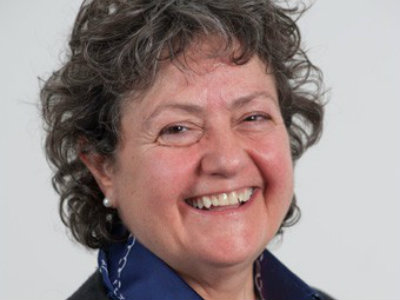
The chief social worker for adults is to place a stronger focus on practitioners’ proficiency around use of the Mental Capacity Act in her forthcoming knowledge and skills statement.
Lyn Romeo has said that the final statement, due in February, will contain a stronger Mental Capacity Act (MCA) element than the draft version put out to consultation last October. The statement will set out the skills that adult social workers will be expected to have at the end of their first year in practice. It will also influence a national minimum assessment criteria for social workers in adult services that is being developed by the Department of Health.
The draft version of the knowledge and skills statement contained three mentions of ‘mental capacity’. But Romeo told Community Care that the final version, which will be published in February, will have a stronger focus on the MCA.
“I’m looking to strengthen it because in terms of adult social care, particularly a lot of the statutory environments in which social workers work, capacity issues will be quite prevalent. Social workers have a real practical leadership role on this. So I really want to make sure that by the end of a person’s first year of employment that they have a strong grasp of capacity, that it is a core part of the social work toolkit,” she said.
“I see it [the MCA] as being something that encompasses excellent social work practice in terms of empowering and enabling people. It’s such a key part of supporting people to have their rights safeguarded.”
Romeo will also be hosting a Mental Capacity Act seminar in March in order to give professionals the opportunity to share good practice and concerns around using the MCA and the Deprivation of liberty safeguards (Dols).
In a letter sent to social care directors last week, she said that 2014 was “perhaps the most significant year” for the MCA in its history, pointing to the impact of a Supreme Court ruling in March of last year that led to an eight-fold increase in Dols referrals and the publication of a House of Lords report that was highly-critical of the Dols and raised issues over the MCA’s implementation.
In the letter, Romeo paid tribute to the effort of social care teams in responding to the sustained surge in Dols referrals since the Supreme Court ruling and thanked social workers for responding to a call for feedback on how the profession could help improve awareness of the MCA across health and social care services.
“We had so many responses. I was really pleased that people were so passionate about it and came back with so much appetite to work with people using services and other professions,” she told Community Care.
“I think the training opportunities for social workers around the MCA and Dols are improving all the time both in terms of social work programmes and CPD and I think a lot of what has happened in the past 18 months has helped. This is seen as such a key area now and it means there are real opportunities for social work to really grasp the nettle and take the lead on this while not diminishing the responsibilities of other professional groups.”


 Bournemouth, Christchurch and Poole
Bournemouth, Christchurch and Poole  Hampshire County Council
Hampshire County Council  Lincolnshire County Council
Lincolnshire County Council  Norfolk County Council
Norfolk County Council  Northamptonshire Children’s Trust
Northamptonshire Children’s Trust  South Gloucestershire Council
South Gloucestershire Council  Wiltshire Council
Wiltshire Council  Wokingham Borough Council
Wokingham Borough Council  Children and young people with SEND are ‘valued and prioritised’ in Wiltshire, find inspectors
Children and young people with SEND are ‘valued and prioritised’ in Wiltshire, find inspectors  How specialist refugee teams benefit young people and social workers
How specialist refugee teams benefit young people and social workers  Podcast: returning to social work after becoming a first-time parent
Podcast: returning to social work after becoming a first-time parent  Podcast: would you work for an inadequate-rated service?
Podcast: would you work for an inadequate-rated service?  Family help: one local authority’s experience of the model
Family help: one local authority’s experience of the model  Workforce Insights – showcasing a selection of the sector’s top recruiters
Workforce Insights – showcasing a selection of the sector’s top recruiters 

 Facebook
Facebook X
X LinkedIn
LinkedIn Instagram
Instagram
“Romeo will also be hosting a Mental Capacity Act seminar in March in order to give professionals the opportunity to share good practice and concerns around using the MCA and the Deprivation of liberty safeguards (Dols).”
I hope Lyn also gives proper consideration to the very many DoL cases in community settings that now require Court of Protection authorisation following the Cheshire West ruling, which actually come with their own particular challenges and opportunities in relation to MCA.
Absolutly essential! I am so glad to hear this. I train staff on the MCA and it is clear that people are struggling with this and it is not helped when so many areas do not acknowledge it has to underpin all legislation and policies when capacity around decision makeing is apparant.